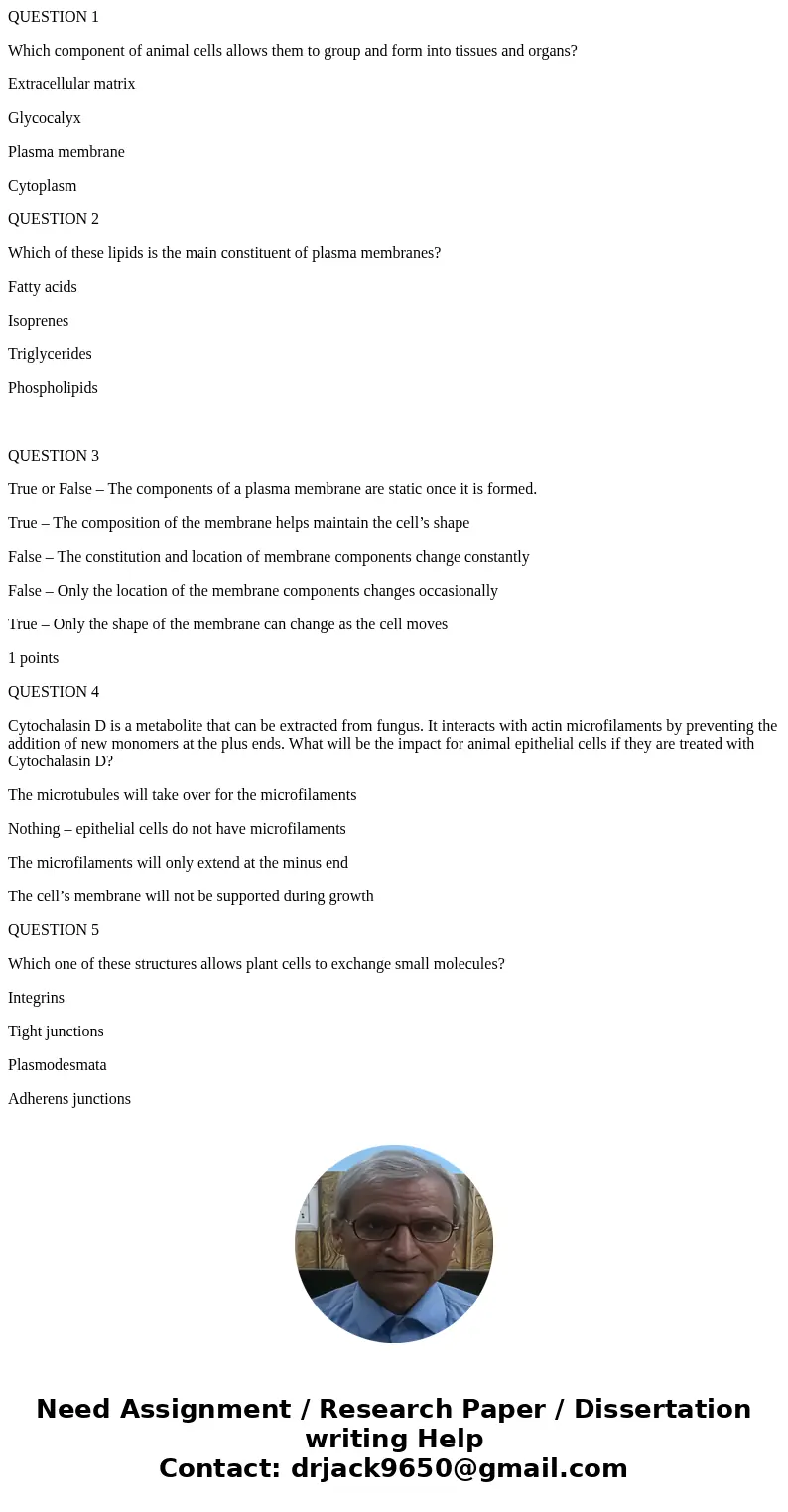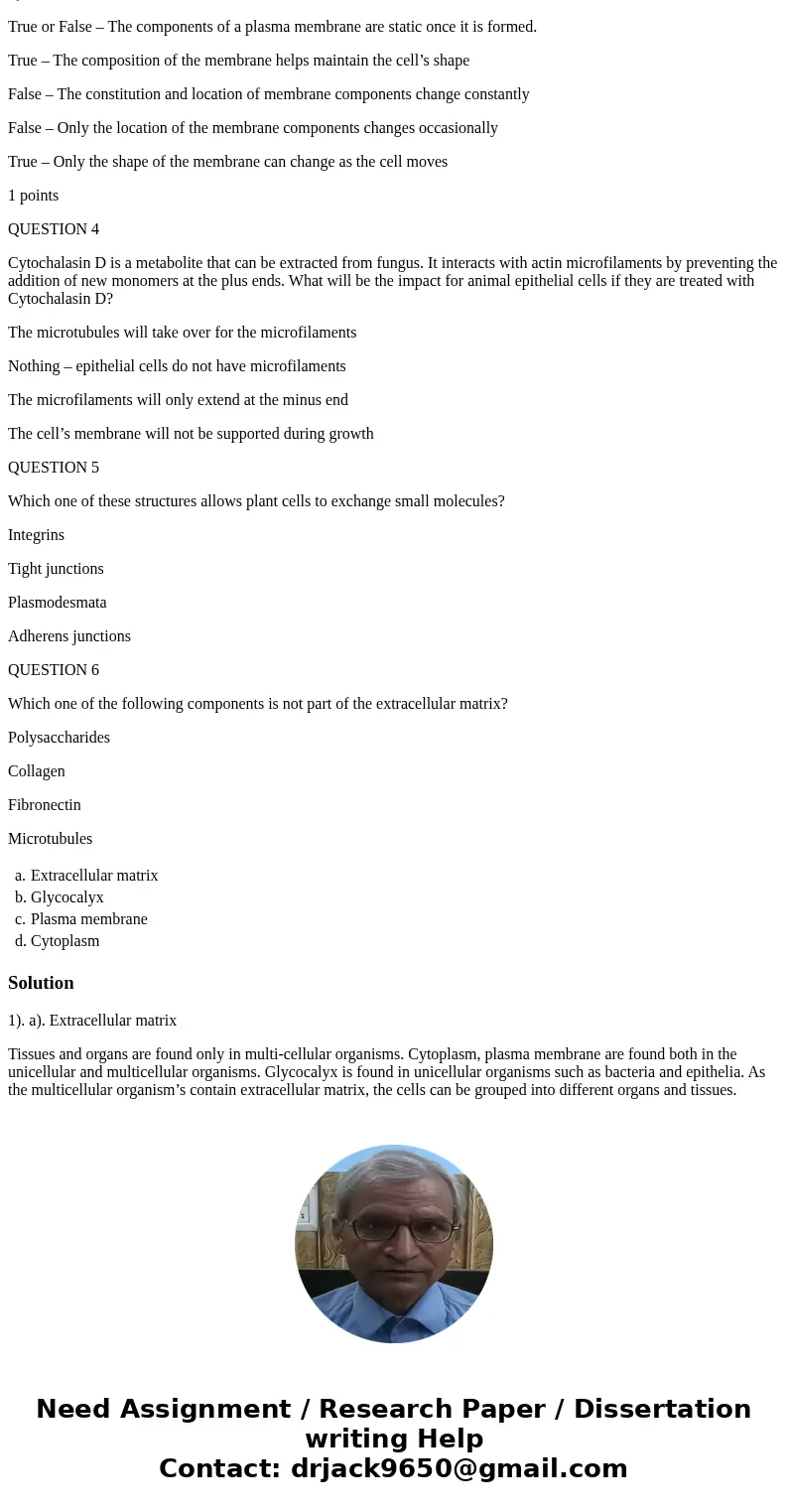QUESTION 1 Which component of animal cells allows them to gr
QUESTION 1
Which component of animal cells allows them to group and form into tissues and organs?
Extracellular matrix
Glycocalyx
Plasma membrane
Cytoplasm
QUESTION 2
Which of these lipids is the main constituent of plasma membranes?
Fatty acids
Isoprenes
Triglycerides
Phospholipids
QUESTION 3
True or False – The components of a plasma membrane are static once it is formed.
True – The composition of the membrane helps maintain the cell’s shape
False – The constitution and location of membrane components change constantly
False – Only the location of the membrane components changes occasionally
True – Only the shape of the membrane can change as the cell moves
1 points
QUESTION 4
Cytochalasin D is a metabolite that can be extracted from fungus. It interacts with actin microfilaments by preventing the addition of new monomers at the plus ends. What will be the impact for animal epithelial cells if they are treated with Cytochalasin D?
The microtubules will take over for the microfilaments
Nothing – epithelial cells do not have microfilaments
The microfilaments will only extend at the minus end
The cell’s membrane will not be supported during growth
QUESTION 5
Which one of these structures allows plant cells to exchange small molecules?
Integrins
Tight junctions
Plasmodesmata
Adherens junctions
QUESTION 6
Which one of the following components is not part of the extracellular matrix?
Polysaccharides
Collagen
Fibronectin
Microtubules
| a. | Extracellular matrix | |
| b. | Glycocalyx | |
| c. | Plasma membrane | |
| d. | Cytoplasm |
Solution
1). a). Extracellular matrix
Tissues and organs are found only in multi-cellular organisms. Cytoplasm, plasma membrane are found both in the unicellular and multicellular organisms. Glycocalyx is found in unicellular organisms such as bacteria and epithelia. As the multicellular organism’s contain extracellular matrix, the cells can be grouped into different organs and tissues.


 Homework Sourse
Homework Sourse